
When it comes to knowing what filters to have in your kit bag we’ve identified the key three: a Neutral Density graduated (ND Grad), Neutral Density (ND), and polariser filter. Most professional landscape photographers use these filters at various times for many reasons, from trying to achieve a longer exposure time to reducing the glare from a reflective surface. Different filters have alternative functions and there are so many of them on the market that sometimes it can feel overwhelming to know which ones to buy. However if you stick with the key three you’ll get great results whatever the circumstances.
Landscape and professional photographer Verity Milligan uses the key three for her landscape and architectural work. ‘I have LEE’s new 100 filter system (which is at the pricier end of the scales), but previously I’ve used both Kase and Benro filters, which are all good.’
1. The ND Grad
A Neutral Density Graduated (ND Grad) fi lter is like an ND filter but with a gradual blend from dark on the top to clear at the bottom. The top part masks over the sky meaning the exposure time between the sky and land are reading closer exposure values. Verity says, ‘I use graduated filters when I want to expose for the foreground and keep the correct exposure in the sky. They can be useful when shooting at the beginning or end of the day when the light is low and it can be difficult to maintain good exposure in the foreground and the sky. They can also be very useful if I’m shooting in gloomy/stormy conditions.’ She continues, ‘The advantages to using a grad is the freedom it can give you to shoot in bright conditions and the control over the exposure. Sure, you can replicate it to a certain degree in post, but really this isn’t ideal.’
Diese Geschichte stammt aus der October 26, 2019-Ausgabe von Amateur Photographer.
Starten Sie Ihre 7-tägige kostenlose Testversion von Magzter GOLD, um auf Tausende kuratierte Premium-Storys sowie über 8.000 Zeitschriften und Zeitungen zuzugreifen.
Bereits Abonnent ? Anmelden
Diese Geschichte stammt aus der October 26, 2019-Ausgabe von Amateur Photographer.
Starten Sie Ihre 7-tägige kostenlose Testversion von Magzter GOLD, um auf Tausende kuratierte Premium-Storys sowie über 8.000 Zeitschriften und Zeitungen zuzugreifen.
Bereits Abonnent? Anmelden

Calling The Shots: A Queer History of Photography
Offering an unprecedented view of photographic history through a queer lens, this is a wonderful and powerful book, says
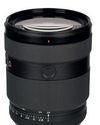
Large-aperture standard zoom, too
SONY has also revealed a new premium standard zoom, the FE 28-70mm F2 GM.
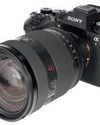
Super-fast, high-res Sony Alpha Ai II
SONY has announced its new professional full-frame flagship camera, the Alpha A1 II.
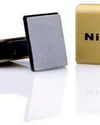
39 awesome accessories
Our round-up of the best accessories we've used and reviewed this year, along with some old favourites. There's something here for every budget, starting from just £7, including tripods, bags, filters and much more

Such a thing as society
This autumn sees the launch of a major new book and exhibition devoted to examining the multiplicities of photography during 1980s Britain. Peter Dench finds out more

Join Club
The sociable Canvey Island Photographic Club is keen to grow its in-person meet ups
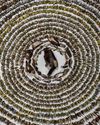
Capturing flight
Winners and finalists of Bird Photographer of the Year share their tips for success with Hollie Latham Hucker
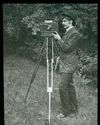
140 years of change
AP has become the world’s oldest surviving consumer photo magazine because we have moved with the times, says Nigel Atherton

Preserving history in platinum
A deep dive into the meticulous art of platinum printing, and the collaboration between the Royal Geographical Society and Salto Ulbeek. Mike Crawford explores how they brought historical photographs to life with enduring beauty and precision
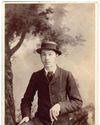
Life in the past lane
What was life like for an amateur photographer in 1884? John Wade takes a trip back in time